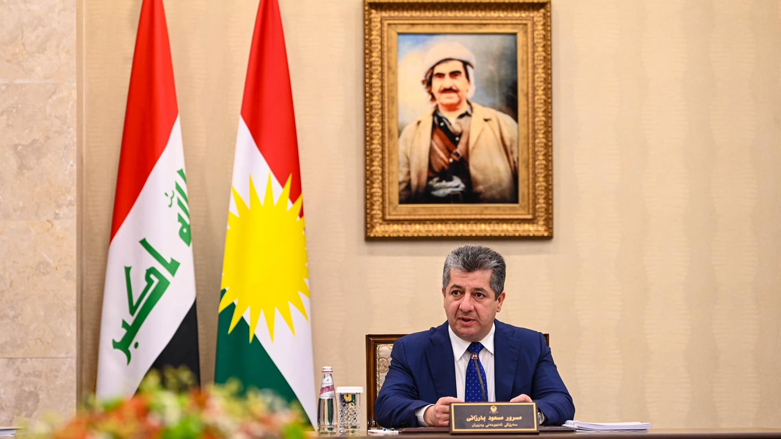PM Barzani calls for implementing Sinjar Agreement on 9th Yezidi genocide anniversary
The UK, the US, and the UN support the deal and have called for its immediate implementation.

ERBIL (Kurdistan 24) – Marking the 9th anniversary of the Yezidi genocide, Kurdistan Region Prime Minister Masrour Barzani on Thursday called for implementing the Sinjar Agreement signed three years ago between Erbil and Baghdad to pave the way for the return of displaced Yezidis, according to a statement.
“We highly honor the victims of the massacre as well as the sacrifice and resilience of Peshmerga forces under the leadership of President Masoud Barzani that defeated the myth of ISIS, liberated Sinjar, and recorded a history,” Barzani said in a statement.
Today, we come together to honor the memory of the thousands of innocent lives that were brutally taken, the families torn apart, and the survivors left scarred by the heinous #YazidiGenocide. pic.twitter.com/v4aPs6tOn7
— Masrour Barzani (@masrourbarzani) August 3, 2023
The premier called for implementing the Sinjar Agreement, which has been hindered by the ongoing presence of militia forces.
“Situation in Sinjar has not been normalized after nine years as militia forces and outlawed groups had imposed themselves on the area, to which the Yezidi sisters and brothers have not returned,” Barzani said, calling for implementing the deal and ouster of the forces.
The UK, the US, and the UN support the deal and have called for its immediate implementation.
The so-called Islamic State militants August 2014 attacked the Yezidi-majority town of Sinjar and nearby villages, killing at least 5,000 Yezidis as well as enslaving 6,000 women and minors. Around 400,000 others were displaced by the offensive.
A number of countries and the United Nations have acknowledged that acts of genocide had been committed by ISIS against the group. On Tuesday, the UK formally recognized the atrocities as genocide.
Barzani extended his gratitude to the countries and organizations that had acknowledged the occurrence of genocide, hoping the international community to continue to assist in lessening the suffering.
The premier reiterated his government’s support for the “legitimate demands” of the Yezidis.
As Kurdistan Region continues to host displaced Yezidis, the Iraqi federal government has shut down all the camps under its jurisdiction, forcing the vulnerable population to return to the areas that had not been reconstructed. Over 60,000 Yezidi families are still residing in Kurdistan Region’s Duhok camps, according to official figures.
The Kurdish region has also established an office to rescue the kidnapped Yezidis since 2014. More than 3,500 Yezidis have been rescued so far, according to Kurdistan Regional Government data.